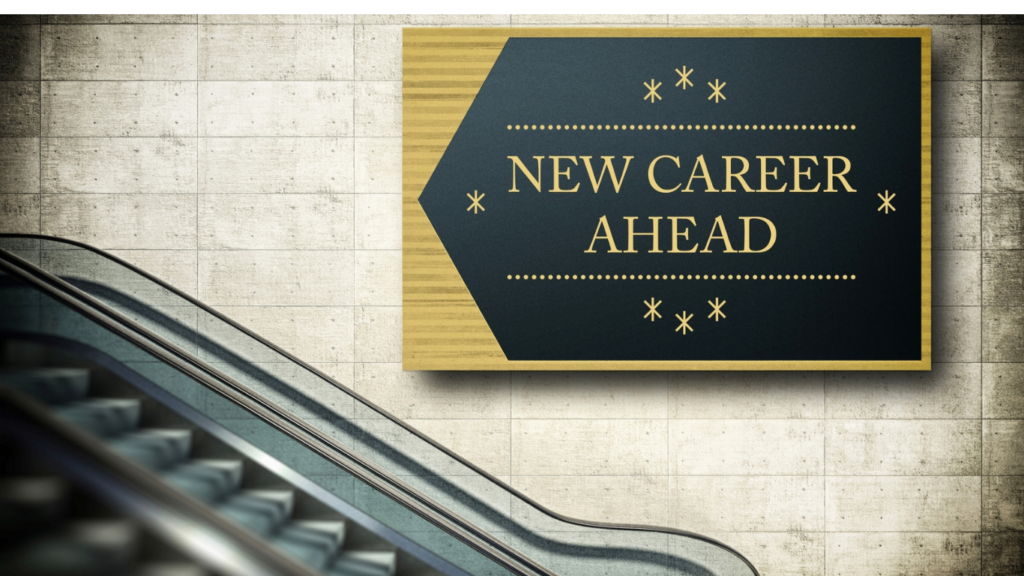The middle years of life can be a time of questioning and reevaluation. As you reach your 40s and 50s, you may find yourself wanting more meaning and purpose from your work. While starting a new career in midlife can seem daunting, it can also lead to greater fulfillment. Here are some tips for considering a meaningful career change during this stage of life.
Do Some Soul Searching
First, spend time in self-reflection. What parts of your current work bring you satisfaction? What leaves you feeling drained or uninspired? Make a list of tasks and roles you enjoy and those you’d rather avoid. This can help identify fields and jobs that may be a better fit.

Get Clear On Your Priorities
Next, clarify your priorities and the kind of work environment you want. For example, do you value work-life balance? Are you seeking greater challenges and responsibilities? Would you prefer working independently or collaboratively? Defining these priorities can point you towards careers that align with your needs and desires.
Explore New Possibilities
With an open mind, research careers that interest you and match your priorities. Talk to friends, family members and colleagues about their work. Reach out to people who have jobs that appeal to you and ask if they’d be willing to share their experience and advice. Explore professional associations and job sites in fields of interest. This can expand your ideas about possible career paths.

Assess Your Skills
Take an inventory of your skills, knowledge and experience. What competencies have you developed in your current career and life experience? What skills could transfer to a new role or field? Identifying your strengths and talents can reveal possibilities you may not have considered. For example, communication or management skills may apply across industries.
Enhance Your Education
To open new career options, assess any gaps in your qualifications. Taking classes, getting a certification or pursuing a degree may give you the credentials and specialized expertise needed to switch fields. Online courses and programs offer flexibility for busy midlife schedules.
Weigh the Trade-Offs
Changing careers can require trade-offs, especially if it involves going back to school or taking an entry-level position. Consider whether you’re willing to sacrifice time and earning potential for more meaning and engagement. Create a budget to see if a career transition is financially feasible.

Build Your Network
Networking will be critical for transitioning into a new field. Use LinkedIn and other professional contacts to expand your network. Reach out to people working in your desired field to learn about opportunities and get career advice. Consider volunteering or taking on freelance work to gain experience in a new area.
Polish Your Resume
When applying for jobs in a new field, customize your resume. Highlight transferable skills and relevant accomplishments. Explain your reasons for changing careers in your cover letter. For example, discuss your passion for the new field or how the role aligns with your strengths.
Prepare For Interviews
During interviews, be ready to talk about why you’re making a midlife career shift. Focus on the value you can bring through your experience, skills and commitment to professional growth. Be willing to start in a junior role and explain your enthusiasm for learning new things.
Take Smart Risks
Making a dramatic career change can be risky. But with careful planning, you can minimize risks and set yourself up for success. Consider moonlighting or job shadowing before making a complete switch. Have savings to cover expenses during a career transition. Start networking and laying the groundwork while still employed. Take things one step at a time.
Embrace the Possibilities
Instead of sticking with the safe and familiar, embrace change and growth. Reframe the idea of starting over in midlife as an exciting opportunity. Allow yourself to dream about what work would feel meaningful and exhilarating. Then take practical steps to make it happen. With passion and persistence, you can find fulfilling work that energizes you for the second half of life.

FAQ
Q: Why might someone consider changing careers in midlife?
A: There are a few common reasons, including seeking greater purpose, better work-life balance, a new challenge, financial benefits, or a better fit for your skills and interests at this stage of life. Midlife is often a time of reevaluation.
Q: What are some important things to do when considering a career change?
A: Take time to reflect on your priorities, values, and desired work environment. Research fields and jobs that align with your needs and interests. Take stock of your skills and experience and identify gaps to fill through education and training. Build up your professional network and polish your resume to highlight transferable skills.
Q: What are some potential challenges with making a midlife career change?
A: It can require trade-offs like going back to school, starting in an entry-level role, and earning less money initially. There are risks with leaving an established career and venturing into the unknown. It takes extra effort to network and market yourself in a new field.
Q: How can someone mitigate potential risks of a midlife career change?
A: Do your research and make a plan to develop any required new skills or credentials. Start networking well in advance. See if you can moonlight or job shadow in your desired field before fully transitioning. Have some financial savings to cushion the transition between careers. Take things step-by-step.
Q: What are some benefits that can come from changing careers in midlife?
A: Greater meaning, purpose, and alignment with your values. Reignited passion and excitement for work. Utilizing your skills, knowledge, and experience in new ways. Personal and professional growth. Financial gains over the long-term in some cases.
Q: How should someone explain their reasons for changing careers during a midlife job interview?
A: Focus on your transferable skills, passion for the new field, desire for meaningful work, and how the role is a good fit based on your experience and strengths. Explain your commitment to lifelong learning and growth.
Q: What is the key to making a successful midlife career change?
A: An openness to possibilities, calculated risks, embracing change as an opportunity for growth, following your dreams, and taking practical steps to make it happen through preparation, training, networking and persistence.
You’ve made some good points there. I checked on the net for more info about the issue
and found most people will go along with your
views on this web site.
Hey there! This is my first comment here so I just wanyed to give a quick shout oout and say
I truly enjoy reading your blog posts. Can you recommend any other blogs/websites/forums
that deal with the same subjects? Appreciate it! http://boyarka-Inform.com/
Heyy there! This is my first comment hete so I just wanted tto give a quick shout out and say
I truly enjoy reading your blog posts. Can you recommend any other blogs/websites/forums that deal ith tthe same subjects?
Appreciate it! http://boyarka-Inform.com/